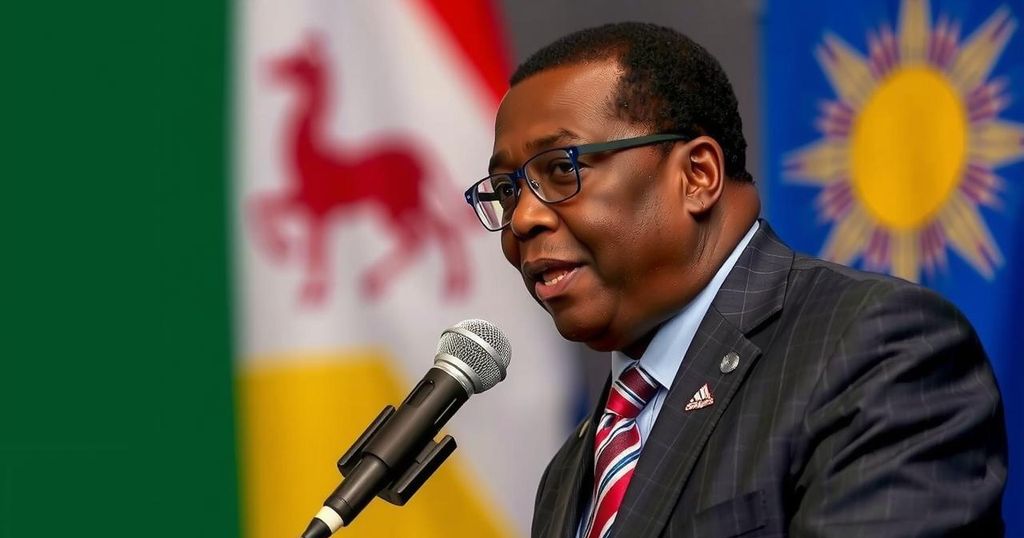Namibia Opposition Challenges Election Results Amid Allegations of Fraud

Namibia’s main opposition party, led by Panduleni Itula, has rejected the results of the recent elections due to reported logistical problems and alleged electoral malpractices. Voting extended beyond the initial schedule amid concerns over ballot shortages and technical failures. With Swapo’s Netumbo Nandi-Ndaitwah leading the vote count, the IPC plans to seek legal redress regarding electoral mismanagement. The political landscape is shifting as Swapo faces decreased support, reflecting broader regional trends.
The opposition party in Namibia, led by presidential candidate Panduleni Itula, has announced its refusal to accept the results of the recent general election, citing significant logistical issues and alleged electoral malpractice. The elections, which commenced on Wednesday and extended through Saturday due to complications such as insufficient ballot papers and technical failures, have sparked controversy. As the ruling party, the South West Africa People’s Organisation (Swapo) seeks to maintain its long-standing grip on power, Netumbo Nandi-Ndaitwah is vying to become Namibia’s first female president.
Mr. Itula has characterized the electoral process as “illegitimately continuing,” urging calm while mobilizing the IPC to pursue judicial remedies. Early counts indicate Nandi-Ndaitwah leads with 48% of the votes compared to Itula’s 30%, although a candidate needs a majority to secure victory without a runoff. Given Swapo’s declining popularity, the political landscape in Namibia mirrors trends in the region where former liberation parties face mounting opposition.
The IPC has encouraged citizens who have experienced voting difficulties due to electoral mismanagement to report their grievances to law enforcement. As vote counting progresses, the potential for a runoff election remains as the cumulative results reflect ongoing challenges within the electoral framework.
Namibia’s political climate has been shaped by the historical dominance of the South West Africa People’s Organisation (Swapo), which has ruled since the country gained independence in 1990. Despite its historical background as a liberation movement, Swapo has seen a decline in electoral support, exemplified in the 2019 elections when it dropped below 60% of votes. The current elections have revealed systemic issues, including logistical failures and a public outcry from opposition parties citing fraudulent practices, suggesting a shift in the electorate’s confidence in established parties. As the elections unfolded, citizens faced various obstacles, leading to major controversies surrounding the legitimacy of the electoral process. The Independent Patriots for Change (IPC) emerged as a significant challenger, highlighting the challenges faced by traditional parties in a changing political landscape. Amidst growing public distrust, the outcome could significantly influence Namibia’s future governance and democratic integrity.
The refusal of Namibia’s main opposition party to recognize the recent election results, led by Panduleni Itula, emphasizes the critical issues regarding electoral integrity and public trust. As Swapo seeks to solidify its leadership during a period of declining popularity, the situation represents a pivotal moment for Namibia’s democratic processes. With allegations of malpractices in the electoral system, the political future of the country stands at a crossroad, influenced by both public sentiment and the response of the courts regarding electoral grievances.
Original Source: www.bbc.com






